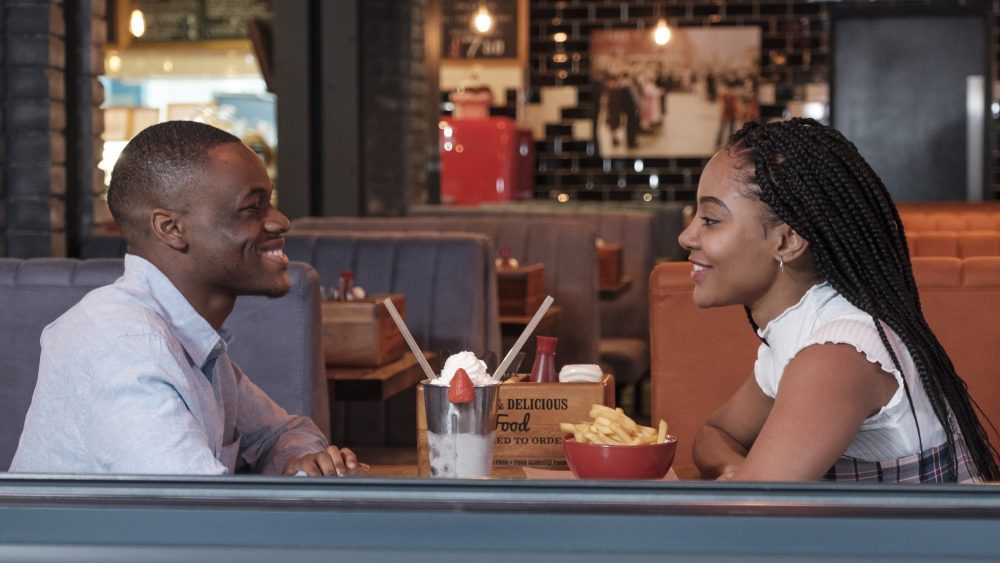Vue and Showcase cinemas chose to ban the Peckham-set gang film ‘Blue Story’ from its 91 UK cinemas after a spate of 25 separate serious incidents across 16 of its cinemas within the first 24 hours of its release. The most notable of these incidents was a machete brawl in Birmingham involving over 100 young people and resulting in the arrest of five teenagers after they injured seven police officers. To some this may highlight the volatility of the film, and of the hot-topic inner city London knife crime epidemic, but does the knee-jerk choice to ban the film actually prove a social inability to face these issues?
‘Blue Story’ was directed by London-native Rapman and chronicles the violent rivalry that emerges between two former friends as they find themselves in gang warfare across different postcodes. The film foregrounds the current knife-crime turmoil permeating many London boroughs and features a predominantly black cast. As the film was created by a black person, features a black cast, and depicts a black community, the choice to ban the film came with widespread condemnation as the ban was perceived as an act of racism. In a conversation with Radio 1, director Rapman discussed how much of the film was informed by his own coming-of-age in Lewisham and that he hoped the film would show how a ‘good kid’ could become a knife-wielding gang member as it so often seen in news headlines. Rapman said that “They didn’t come from child abuse or neglectful mothers. What kids go through in the school playground is so intense, it all starts there.” The film explores the fraught path from childhood to adulthood as engaging in gang violence becomes a means of survival.
Notably, following vocal derision of the choice to ban the film, ‘Blue Story’ returned to Vue cinemas the following week. In reinstating the film, Vue increased security measures, as did Oden which did not ban the film, and then decided not to return the film to the Birmingham complex where the machete fight broke out. In the week following this controversy, a stabbing occurred at a cinema in Nottingham which similarly led to a momentary suspension of screenings although it was later reinstated the following day. The fact the film was ever banned only acts to heighten its importance. Whether the initial decision to ban the film was the product of ‘institutional racism’ or ‘negative bias’ as online commentators have suggested, the violent incidents and consequent ban irrefutably prove a social squeamishness to address the reality for many of London’s youth. Tyrone Harriet, a youth worker familiar with the dangerous south-London landscape of the film, said “Sadiq Khan and Boris Johnson need to go watch this.” This statement exemplifies the necessity of the film; as cities around the country are blighted by knife crime, cinema should not follow in the obliviousness and inaction of government.
The temporary banning of the film comes at an interesting time of concerns around the safety of cinema. The DC film ‘Joker’, which was released a month prior to ‘Blue Story’, generated publicity for threats of violence and the potential for so-called ‘clowncel’ attacks following the mass shooting at DC’s ‘The Dark Knight Rises’ in Colorado in 2012. The Aurora cinema where that shooting happened chose not to screen ‘Joker’ in a clear parallel to the banning of ‘Blue Story’ from locations where violence has broken out. In a further parallel, both films have proven to be financially lucrative with ‘Blue Story’ having the sixth-best opening of any UK film this year. Controversy, it would seem, does little to deter audiences and if anything has proven to embolden their willingness to see films deemed to be problematic by cinema chains. The temporary banning of ‘Blue Story’ was never going to mitigate violence within society, it was just going to further the cultural short-sightedness and willingness to turn a blind-eye to these issues. As there is a clear audience appetite, is it not only right for cinemas to trust their audiences and break the cultural obliviousness which has only perpetuated such violence?
Photo Credit: Variety.

